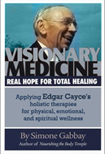
Another study, conducted with animals, and published in the same journal, suggests that, by favorably influencing the body's response to insulin, antioxidant compounds from red grapes may prevent the build-up of fat in muscle tissue. This study, conducted in France, found that rats fed a high-fat and high-sugar diet, but supplemented with grape polyphenols, displayed a lower accumulation of fat in muscle tissues. Researchers established that, while the high-fat, high-sugar diet altered gene expression in muscle cells, these changes were reversed in the animals given the grape extract. A third study, again done with animals, and published in Nutrition & Metabolism, demonstrated that the daily consumption of resveratrol may reduce body fat levels by preventing the formation of fat tissue. The above research findings substantiate the results of earlier studies, including a 2006 report in the journal Cell, which revealed new insights into resveratrol's antiobesity action through its ability to speed up metabolism and cause muscles to burn more energy and work more efficiently. These studies appear to provide at least a partial scientific explanation and confirmation of Edgar Cayce's assertion of the weight-loss-inducing properties of grapes in the form of grape juice, which is to be taken diluted (two parts juice to one part water) before meals, to help combat obesity by altering the way in which the body metabolizes sugars and starches. The major difference is that the research was conducted with concentrated grape compounds in the form of supplements, while the Cayce readings advocate whole grapes and grape juice—diluted grape juice at that! In Edgar Cayce's Diet Plan for Optimal Health and Weight Loss, I propose a hypothetical explanation that could serve to reconcile this apparent discrepancy in the approach to quantity, based on the homeopathic paradigm in which dilution increases the potency of a substance. The information offered in the Cayce readings has long been decades (if not centuries) ahead of its time. Science is catching up and exploring new This summer, therefore, and as long into fall as possible, take advantage of the abundance of fresh grapes on the market. As Cayce reading 2140-1, given for a woman suffering from faulty eliminations, suggests: "…eat as much of the fresh grapes as possible to assimilate." |
Vitamin K for Diabetes Protection Green leafy vegetables are among those most often recommended in the Cayce readings. Current research has shown that these are also the types of vegetables that are highest in antioxidant properties, meaning that they are exceedingly protective of human health by preventing free radical damage in the body. Green leafy veggies are also among the best sources of vitamin K, which plays an important role in blood clotting by regulating the plasma content of proteins required for blood coagulation. There is also evidence that vitamin K promotes bone mineralization, and a new study published in Diabetes Care this summer concluded that high intake of vitamin K may reduce the risk of developing type 2 diabetes—just one more reason to toss a load of fresh greens into your summer salad! |
Olive Oil Cuts Stroke Risk
What better reason to use olive oil liberally to dress your salad greens this summer? For best quality and flavor, be sure to choose extra virgin olive oil, which is produced from the first pressing of olives, using a mechanical process that does not employ heat or solvents. |
Red and Processed Meats Up Risk of Bowel Cancer As you fire up your barbecue this summer, make a conscious choice to stay away from red and processed meats, which, according to a report from the World Cancer Research Fund, increase your chances of developing bowel cancer. A number of earlier studies have also associated red and processed meats with increased cancer risk. In particular, avoid cured meats, such as ham, hot dogs, sausage, and bacon, which have been preserved with nitrites, nitrates, and other toxic chemicals. Organically raised chicken, turkey, and fish from unpolluted waters (which unfortunately are becoming increasingly difficult to find) are healthier alternatives. |
Diet Pop Debunked Edgar Cayce's Diet Plan for Optimal Health and Weight Loss mentions a report published in a 2006 issue of the American Journal of Health and Nutrition stating that the increased consumption of sodas and sugary drinks was the key reason that the number of overweight people had increased. This summer, a new study conducted at the School of Medicine, University of Texas, found that study participants who drank two or more cans of diet soda every day over almost 10 years saw their waist circumferences increase as much as 500 percent (compared to those who did not consume diet soda). Don't be fooled by so-called diet drinks, laden with artificial sweeteners, which are neurotoxins and harmful endocrine disruptors. Quench your thirst with pure water instead. If you find the taste of plain water unpalatable, add a splash of fresh lemon or lime juice—it makes all the difference in taste and also helps to alkalize the body! |
The recent death of singer Amy Winehouse has shone light on the potentially tragic consequences of alcohol and drug addiction. Many people are not aware that biochemistry and nutrition play an important role in the treatment of addiction. Click here to read my article on this subject. |
Nourishing the Body Temple and Visionary Medicine now available for Kindle! Simone's books Nourishing the Body Temple: Edgar Cayce's Approach to Nutrition and Visionary Medicine: Real Hope for Total Healing, which were in print with A.R.E. Press for several years, are now available in Amazon Kindle format. This will ensure that the books remain on the market in a current format while we identify the best way of publishing new print editions. New and used print copies are also still available from individual booksellers at Amazon. |
||
We wish all our readers a happy, healthy, and safe rest of summer! Simone Gabbay and the edgarcaycediet.com team For more information about Edgar Cayce's Diet Plan for Optimal Health and Weight Loss, visit our website at http://www.edgarcaycediet.com or view the book trailer at http://www.edgarcaycediet.com/video.htm. To subscribe to this newsletter, send an e-mail to info@edgarcaycediet.com with "subscribe" in the subject line. To unsubscribe, send an e-mail to info@edgarcaycediet.com with "unsubscribe" in the subject line. Thank you. |
||

.jpg) It's mid-summer, and grape season is finally upon us in the northern hemisphere. Along with the arrival of many plump, juicy bundles of grapes in our food stores and supermarkets, there's a load of new research confirming the numerous health benefits of certain components of the fruit of the vine, notably their beneficial effects on blood sugar balance and metabolism. A study published earlier this year in the British Journal of Nutrition suggests that the phenolic compound resveratrol occurring in the skin of red grapes may improve how the body responds to insulin, the hormone responsible for sugar metabolism. Resveratrol supplements taken over the course of several weeks improved insulin sensitivity in human study subjects.
It's mid-summer, and grape season is finally upon us in the northern hemisphere. Along with the arrival of many plump, juicy bundles of grapes in our food stores and supermarkets, there's a load of new research confirming the numerous health benefits of certain components of the fruit of the vine, notably their beneficial effects on blood sugar balance and metabolism. A study published earlier this year in the British Journal of Nutrition suggests that the phenolic compound resveratrol occurring in the skin of red grapes may improve how the body responds to insulin, the hormone responsible for sugar metabolism. Resveratrol supplements taken over the course of several weeks improved insulin sensitivity in human study subjects..jpg) dimensions, while others remain untapped. What is exciting to observe is that in the case of grapes, grape juice, and wine for that matter, as in so many other fields of research, the Cayce readings and modern science are standing on common ground.
dimensions, while others remain untapped. What is exciting to observe is that in the case of grapes, grape juice, and wine for that matter, as in so many other fields of research, the Cayce readings and modern science are standing on common ground..jpg) The Cayce readings recommend olive oil for culinary as well as for medicinal use, for instance, after the three-day apple fast and after the application of abdominal castor oil packs to assist in gallstone removal. Current research confirms that olive oil reduces the production of cholesterol gallstones and promotes bile secretion, thus improving fat digestion and toxin removal via the liver. Olive oil has also been credited with contributing to the heart-protective effects of the Mediterranean diet. A new study, published in a recent issue of the journal Neurology, demonstrated that a high dietary intake of olive oil may help to prevent stroke in older people. The more olive oil the study subjects consumed, the higher the protective effect appeared to be.
The Cayce readings recommend olive oil for culinary as well as for medicinal use, for instance, after the three-day apple fast and after the application of abdominal castor oil packs to assist in gallstone removal. Current research confirms that olive oil reduces the production of cholesterol gallstones and promotes bile secretion, thus improving fat digestion and toxin removal via the liver. Olive oil has also been credited with contributing to the heart-protective effects of the Mediterranean diet. A new study, published in a recent issue of the journal Neurology, demonstrated that a high dietary intake of olive oil may help to prevent stroke in older people. The more olive oil the study subjects consumed, the higher the protective effect appeared to be. 

